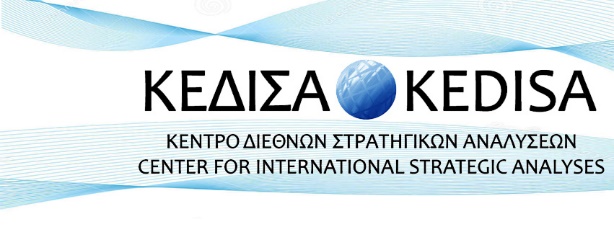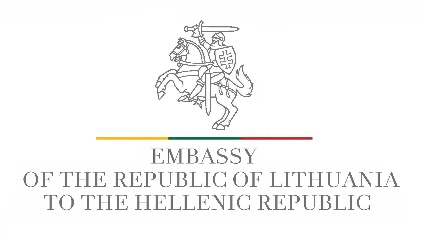

The Center for International Strategic Analyses (KEDISA) co-organizes with the Embassy of the Republic of Lithuania in Greece a webinar titled : “The Geopolitics, Energy Security and Safety of Nuclear Energy” on Tuesday, November 24 (11: 30-14: 30-EET). The webinar will be held in English.
Students will be given a certificate of attendance (Students who will attend the webinar and are interested in receiving a certificate of attendance to send a request to info@kedisa.gr after the webinar)
Join Zoom Meeting for Free
https://us02web.zoom.us/j/89150277629?pwd=MGhqNTFIWmcwNDB2cFdHTmsvajBRUT09
Meeting ID: 891 5027 7629
Passcode: 535263
You may also watch the webinar on the Facebook page of the Embassy of the Republic of Lithuania in Greece and on KEDISA’s YouTube channel.
Webinar’s Topic
As global demand for electricity grows, so does the need for nuclear power. At the same time, however, concerns related to the use of nuclear energy are also on the rise, including on the following questions: (1) How can we prevent energy, whether it be nuclear or other type of energy, from becoming a geopolitical tool in the resource box of major powers, especially those that are not particularly known for compliance with international norms and principles? and (2) Will the international community be able to ensure a high level of implementation of safety standards of nuclear energy in the context of an increasingly fragmented international system?
Effective management of issues raised by these and other questions requires the collaboration of a broad range of actors that goes beyond both geographical boundaries and ideological differences in relation to the use of nuclear energy.
How can the EU, its member states, and other likeminded allies cooperate in not allowing others define the nuclear energy landscape and cede leadership to them on nuclear energy safety, security and, as well as foreign policy influence? What would be the political, economic and international security implications for the EU if the third countries would dominate the civil nuclear energy landscape?
With this in mind, KEDISA – the Center for International Strategic Analyses, in cooperation with the Embassy of the Republic of Lithuania in Greece is organizing a webinar, which intends to discuss the issues mentioned earlier and, above all, to seek answers on what the EU, as a community, and as its individual member-states, could do to reinvigorate and rejuvenate responsible Western leadership in the global nuclear energy industry.
Programme
11:30 – 11:40 Welcoming & Introductions
Dr. Rolandas Kačinskas, H.E. Ambassador of the Republic of Lithuania to the Hellenic Republic
Dr. Andreas G.Banoutsos, Founder & President at the Center for International Strategic Analyses-KEDISA
***
Moderator of the webinar: Mr. Kostas Geropoulos, Energy & Russian Affairs Editor of New Europe Newspaper
***
11:40 – 13:00 Panel I: Nuclear Energy as a Geopolitical Tool
The Changing Geopolitics of Nuclear Energy
Ms. Jane Nakano, Senior Fellow, Energy Security and Climate Change Program, Center for Strategic and International Studies (CSIS), Washington, D.C.
Countering Hybrid Threat of Nuclear Energy
Ms. Hanna Smith, Director of Research and Analysis of the European Centre of Excellence for Countering Hybrid Threats (Hybrid CoE), Helsinki
Nuclear Proliferation Risks in Nuclear Energy Programs
Mr. Themistoklis Z. Zanidis, Analyst at the Center for International Strategic Analyses (KEDISA), Athens
13:00 -14:30 Panel II: Nuclear Energy: Energy Security and Nuclear Safety
Nuclear Energy and the European Energy Security Strategy: Perspectives from Southeastern and Northeastern Europe
Mr. Albinas Zananavičius, Vice-Minister of Foreign Affairs of Lithuania (TBC)
Mr. Constantinos Stambolis, President of the Institute of Energy for Southeast Europe-IENE, Athens
Nuclear Energy Safety Challenges in EU Neighborhood: the Belarussian NPP case
Mr. Kamil Klysinski, Specialist in Belarusian Affairs, Center for Eastern Studies (OSW), Warsaw, Poland

